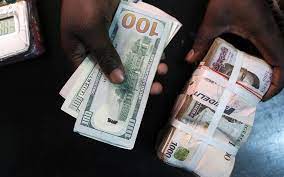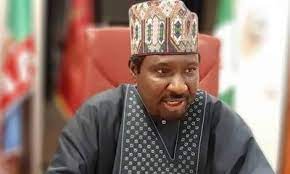How has the ruling All Progressives Congress (APC) fared after one year in office? BODE OLAGOKE looks at how much of the campaign promises the APC has kept and its challenges.
After many years of unsuccessful attempts to bring opposition political parties together into a political marriage for the purpose of wresting power for the ruling party, the dream finally came to pass in 2014, when three major opposition political parties sacrificed their identities to give birth to All Progressives Congress (APC), which is now in power.
It would be recalled that the then ruling Peoples Democratic Party (PDP) did not give the political alliance a chance with some of its chieftains, like former Senior Special Assistance on media and Public affairs to President Goodluck Jonathan, Chief Doyin Okupe, publicly declared that Nigerians should call him a bastard if the political alliance lasted for just a year.
However, the APC has not only lasted for more than a year, it has also spent a year in power as a ruling party. Now, Okupe can all himself whatever name he chooses.
While in opposition APC held the PDP accountable for all the problems of Nigeria. No single day went by without one condemnation or the other of steps wrongly or rightly taken by the PDP.
The 2012 mother of all rally against the removal of fuel subsidy, coordinated by the Save Nigeria Group (SNG) and allegedly sponsored by some chieftains of APC is still fresh in the minds of Nigerians as well as the refusal of APC leadership to participate in the 2014 National Conference are few unforgettable instances.
All the organs of the APC were actively alive to their responsibilities. Most active is the National Publicity Secretary’s office, headed by now Information and Culture Minister, Alhaji Lai Muhammed.
Luckily for APC, the god of politics was strongly behind it and they were able to wrestle power from the PDP at the polls. But since the party gained the power not few political analysts have said that the then opposition party cannot manage its victory. To this end, Nigerians are having a rethink of outcome of 2015 general elections.
APC, NASS leadership crisis
It all began when the leadership tussle at the National Assembly practically divided the party into two factions, with some members of the new PDP who decamped to APC struggling to control the national assembly against the wishes of the ‘original’ members of the party who supported the Senator Lawan’s group.
The crisis controversially produced Senator Bukola Saraki and Hon. Yakubu Dogara as Senate President and the Speaker, respectively.
Saraki, who is former Kwara state governor, undoubtedly stepped on toes by this singular act, consequently, his ordeal at the Code of Conduct Tribunal (CCT) suddenly surfaced, analysts have argued.
This is against the background that in Nigeria’s politics, when a politician dares his party, it is as good as being ready for the worse.
Saraki, unlike his counterpart at the House of Representatives, failed to reconcile with his party men and ‘gods’ after his emergence as senate president, as if he won’t need the party again.
When Saraki’s ordeal started at the CCT, one would have expected his party men and women, even at the highest level of the party, to rally round the man, who undoubtedly played a prominent role in the 2015 victory of the APC, especially as it concerned funding, but unfortunately, the reverse was the case.
Oyegun vs Timi Frank
It is unthinkable to say that almost a year now the APC ruling party does not have a spokesman, reportedly, due to interest best known to leadership of the party.
The APC constitution provides for deputy national publicity secretary, Timi Frank, to act in the capacity of national publicity secretary, Lai Mohammed, who was appointed minister.
To the amazement of party supporters and political watchers, the party’s National Chairman, Chief John Oyegun, said such would not happen and has led to several accusations, counter accusations culminating in cold war have been going on between Oyegun and Frank.
Recently, Frank, who has been bitter over allegedly denied him his rightful place, said there were factions within the national leadership of his party, a claim the national secretary of the party, Mai Mala Buni, quickly denied.
According to Frank: “The party is now divided into two. The issue of the senate president is still there and the party is not talking. So, there is crisis in the party. We have so many divisions and they are keeping quiet. If care is not taking, we are soon going to lose our popularity as a party.”
Although he didn’t give identities of leaders of the two factions, there are indications that while the ACN, CPC and ANPP are largely doing things in common, the new PDP seems to be on its own.
As usual, the APC national secretary denied the claim, stating: “The APC national leadership remains united and solidly committed to the task of bringing cohesion to the party at all levels.
Apart from four vacant positions in the party’s National working Committee (NWC) not filled for months, Oyegun, is also presiding over a ruling party without Board of Trustees (BoT) which some prominent members of the party are not happy about.
Crisis in the states
Despite the denial about crisis in the party, the row between the former Governor of Kano state, Rabiu Musa Kwankwaso and his successor, Umar Ganduje, remains unresolved.
A similar scenario exists between Governor Nasir El-Rufai of Kaduna state and one of the senators representing the state at the National Assembly, Shehu Sani, as they continue to fight for the soul of the party.
In Bayelsa, a faction of the party led by the state chairman has suspended its governorship candidate and the former Governor of the state, Chief Timipre Sylva, a move Sylvas’ loyalists described as a “joke of the year”
Similarly, in Cross River, the crisis has to do with the defection of Clement Ebri, a former governor on the platform of the defunct National Republican Convention (NRC).
Ebri is believed to have links with the Northern political establishment, but some elements within the APC, a said not to be comfortable with his presence in the party.
it is not surprising to watchers of the APC that Ebri was suspended for alleged anti-party activities, notwithstanding that he had just been admitted along with former Senate Leader, Senator Ndoma Egba (SAN) into the BoT of the party.
Insiders say APC is having a running battle with party faithful in his Mkpani/Agoi Ward, in Yakurr Local Government Area, in what many say is a battle between Ebri and the Minister of Niger Delta Affairs, Usani Usani, over who controls the politics of the party in the Central Senatorial District.
In a letter dated March 21, 2016, and signed by 17 out of the 20 executive members, including the Chairman, Monday Emma Oboma and Secretary, Joel Ekpo Agbor of Mkpani/Agoi, Council Ward of Yakurr LGA, addressed to the chapter and state executive of the party in the state, the Monday Emma Oboma leadership said that an investigative panel set up by the Mkpani/Agoi ward of the party has indicted Ebiri of anti-party activities.
In Ogun state, the return of a founding member of APC, Segun Oshoba, who left the party to form SDP, has divided the party into two with Governor Ibikunle Amosun’s led faction not too comfortable with the development.
In Kogi state, the State Executive Council of the party had passed a vote of no confidence on Governor Yahaya Bello, for allegedly appointing non-party men into his government.
The executive were said to have met in Lokoja, on Monday, April 11, and part of the outcome of the meeting was to forward a letter to the national headquarters of the party detailing the ‘many sins’ of Governor Bello.
In a letter dated April 12, 2016, and addressed to the National Chairman of the APC, John Odigie-Oyegun and signed by all the 34 members of the State Executive Council, the Kogi APC accused Mr. Bello of sidelining members of the governing party and hobnobbing with members of the opposition Peoples Democratic Party.
They accused Bello of failing to appoint even a single card-carrying member of the APC, saying “all the 45 appointments made so far by His Excellency Gov. Yahaya Bello are given to the PDP.”
This is even as members of the Kogi State House of Assembly are currently involved in leadership crisis with two members claiming the office of Speaker, a situation which had led to the National assembly ordering the Inspector General of Police (IGP) to seal the assembly complex.
To political watchers, the current APC National Executive Council (NEC) seems to have lost control of the party, even as many of them are currently battling for their seats, so making it difficult to resolve the crises bedeviling the party across the country.
Views of APC chieftains
Reacting to this development, a former National Secretary of APC, Alhaji Tijani Tumsa, assured that the new APC will soon emerge.
When asked to comment on the crisis rocking the party at all levels, Tumsa said: “Normally, when you are trying to transform a system that has been there for a while, you find challenges. There is usually resistance to change and transformational things.
“Right now, it is getting to be a situation whereby an opposition party is transiting to governance. When that happens, there are some teething problems that normally occur and this is what we are seeing unfolding right now,” he said.
However, the national secretary in a statement recently said the insinuations of crisis within the APC were ‘mere imagination,’ noting that, “the APC national leadership remains united and solidly committed to the task of bringing cohesion to the party at all levels.”
“Recently, the APC held its national caucus and National Executive Committee (NEC) meetings where positive and far-reaching decisions were collectively taken by the party’s leadership to drive it forward.
Buni in a statement at the end of the meeting stated that: “The party will not deny anybody or interest the right to seek justice where he feels this has been denied him. However, we sincerely appeal that we all play by the rules in our engagements and be guarded in our utterances.
“The public is advised not to misinterpret or confuse Comrade Timi Frank’s personal opinions to be the official position of the party or the true reflection of what is happening inside the party.
“For the umpteenth time, only the APC National Chairman and the National Secretary are authorised to officially speak for the party.”
Political analysts have expressed concerns that if the wobbling organisation of APC continues, as the nation prepares for the 2019 general elections, change of power might be inevitable.



